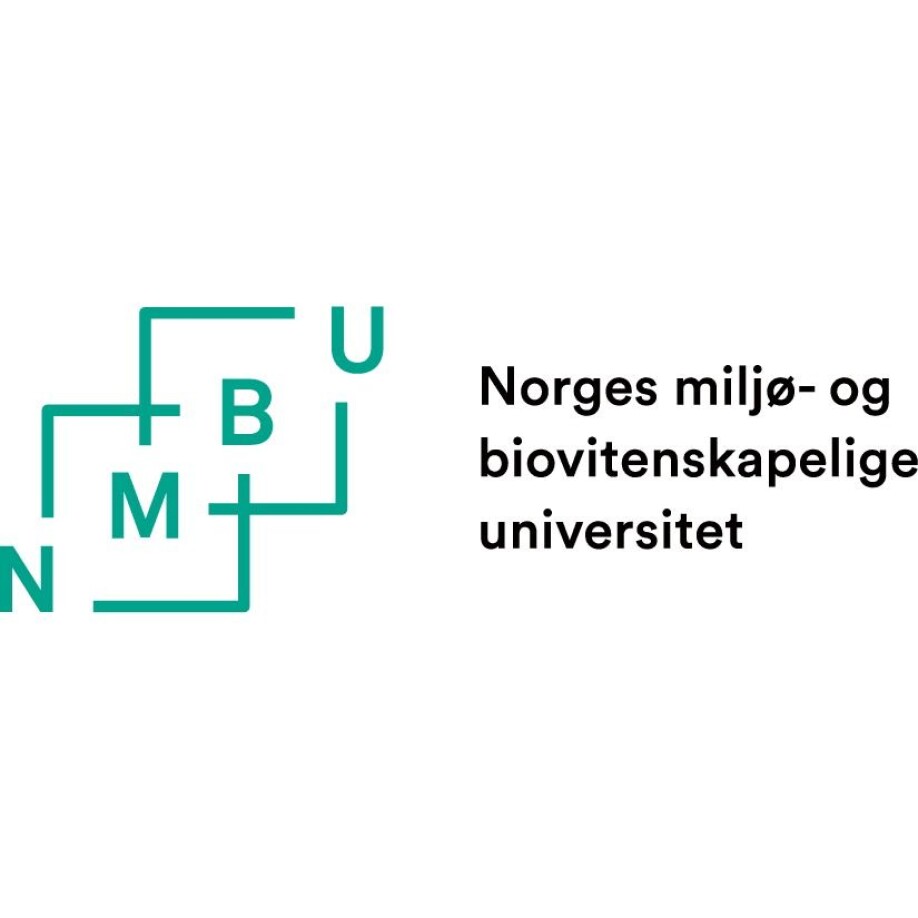Stilling:
PhD scholarship within environmental microbiology
Application deadline: 15.01.2019

About the position
The Faculty of Chemistry, Biotechnology and Food Science (KBM) at the Norwegian University of Life Sciences (NMBU) has a vacant 3 year PhD–position within environmental microbiology. The successful candidate will be anchored in the NMBU Nitrogen group (https://www.nmbu.no/en/research/groups/nitrogen), which consists of members from the research group Microbial Ecology and Physiology at KBM and partners at the Faculty of Environmental Sciences and Natural Resource Management (MINA).
The project will be anchored in the NMBU-Nitrogen Group’s basic research on the microbial nitrogen red/ox transformations, which cause emission of nitrous oxide (N2O) to the atmosphere.
N2O accounts for a large share of the climate forcing of food production, and the ultimate aim of our research is to find ways to reduce N2O emissions. To achieve this, we need to better understand the ecology, physiology and regulatory biology of the microbes involved. Our work along these lines has opened biotechnological avenues for reducing N2O emission, and we are currently exploring a range of options together with biogas industries and (bio)fertilizer companies.
In parallel with applied research, we are diving deeper into the regulatory biology of a number of model organisms, and this is where the PhD candidate will participate: unpicking regulatory phenomena in denitrifying prokaryotes through a combination of genomics, molecular manipulation and detailed phenotypic studies. The candidate will have access to state-of-the-art infrastructure for microbiology, proteomics and molecular biology, as well as our unique robotized systems for monitoring gas kinetics in denitrifying bacteria.
Main tasks
As part of the project, the candidate will study the respiratory physiology of denitrifying prokaryotes (mainly bacteria) through:
- Genomics/bioinformatics
- Molecular manipulations of selected strains
- Gas kinetics and gene expression in model organism(s) and mutants under a range of conditions
- Fluorescence microscopy and microfluidics
- Proteomics of denitrifying cultures
The purpose of the PhD fellowship is research training leading to the successful completion of a PhD degree. The fellowship requires admission to the PhD program at KBM.
Acdemic Qualifications
The successful applicant must meet the conditions defined for admission to a PhD programme at NMBU. The applicant must have an academically relevant education corresponding to a five-year Norwegian degree programme, where 120 credits are at master's degree level. The applicant must have a documented strong academic background from previous studies, and be able to document proficiency in both written and oral English. For more detailed information on the admission criteria please see the PhD Regulations and the relevant PhD programme description.
The applicant must document expertise and interest in the research subject (microbiology).
Required Academic qualifications
The successful applicant must hold (or expect to complete within January 2019) a master’s degree within a relevant the field of biosciences (preferably microbiology)
Desired Academic qualifications
Candidates experienced in one or more out of the following will be preferred:
- Molecular techniques
- Fluorescence microscopy and image analyses
- Proteomics
- Enzyme kinetics
- Bioinformatics
Desired traits and skills:
- Accuracy and patience with experimental work
- Strong communication skills, both written and oral English and preferably a Scandinavian language.
- Analytical skills
- Interest and ability to collaborate closely with supervisors and partners
- Ability to work independently
- Flexibility, robustness and staying power
Remuneration and information
The position is placed in government pay scale position code 1017 PhD. Fellow, wage framework 20 (salary grade 36-62). PhD. Fellows are normally placed in pay grade 51 (NOK 449.400,-) on the Norwegian Government salary scale upon employment and follow ordinary meriting regulations.
Employment is conducted according to national guidelines for University and Technical College PhD scholars.
For further information, please contact:
- Dr. Linda Bergaust (linda.bergaust@nmbu.no; +47 67232449) or
- Professor Lars R. Bakken (lars.bakken@nmbu.no; +4767231830)
NMBU offers:
- An optimistic academic institution with focus on professional development, dissemination and competence.
- An interdisciplinary and inclusive environment that provides exciting research- and development opportunities.
- Daily contact with inspiring students and skilled colleagues.
- Various welfare schemes.
- Beautiful surroundings just outside Oslo.
Application
To apply online for this vacancy, please click on the 'Apply for this job' button above. This will route you to the University's Web Recruitment System, where you will need to register an account (if you have not already) and log in before completing the online application form.
Application deadline: 15.01.2019
Applications should include (electronically) a letter of intent, curriculum vitae, full publication list, copies of degree certificates and transcripts of academic records (all certified), and a list of two persons who may act as references (with phone numbers and e-mail addresses). Publications should be included electronically within the application deadline. The relevant NMBU Department may require further documentation, e.g. proof of English proficiency.
Printed material which cannot be sent electronically should be sent by surface mail to Norwegian University of Life Sciences, Faculty of Chemistry, Biotechnology and Food Science, P.O. Box 5003, NO-1432 Ås, within (15.01.2019). Please quote reference number (18/06495).
If it is difficult to judge the applicant’s contribution for publications with multiple authors, a short description of the applicant’s contribution must be included.






